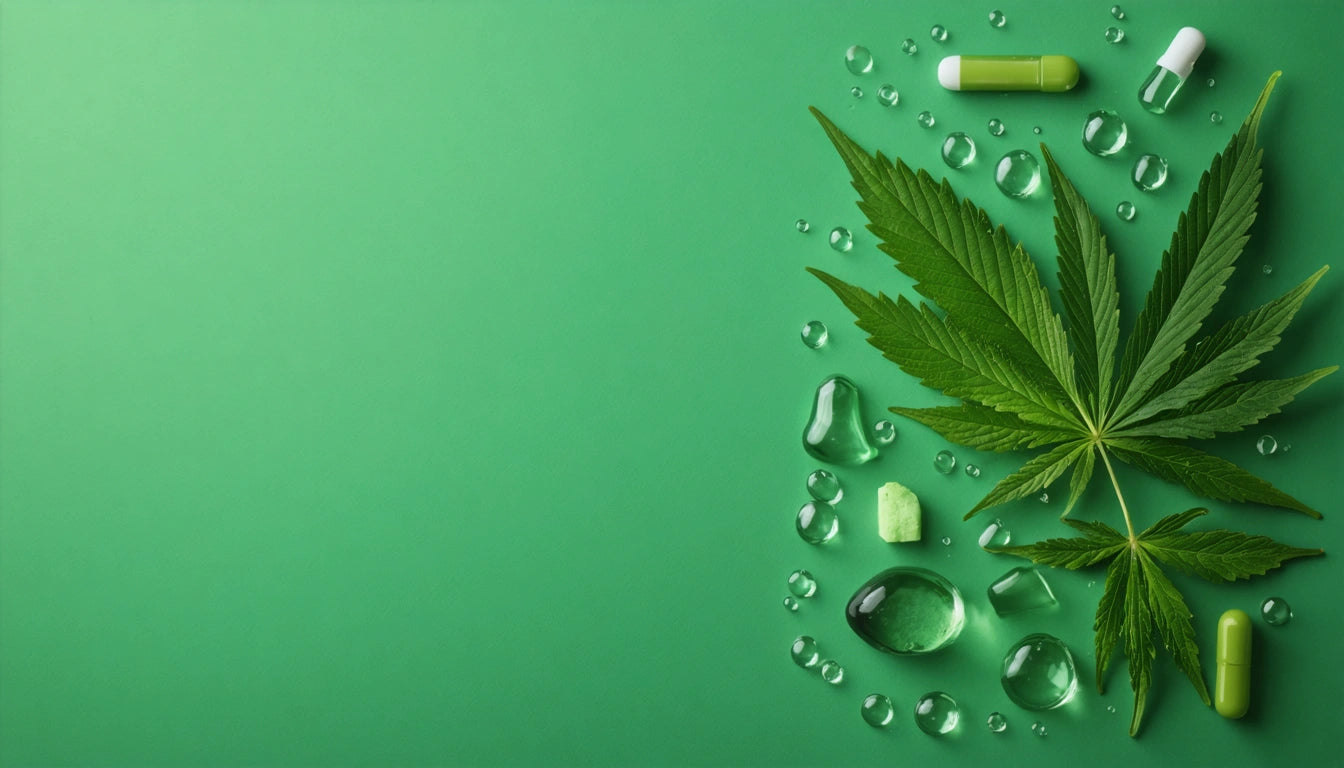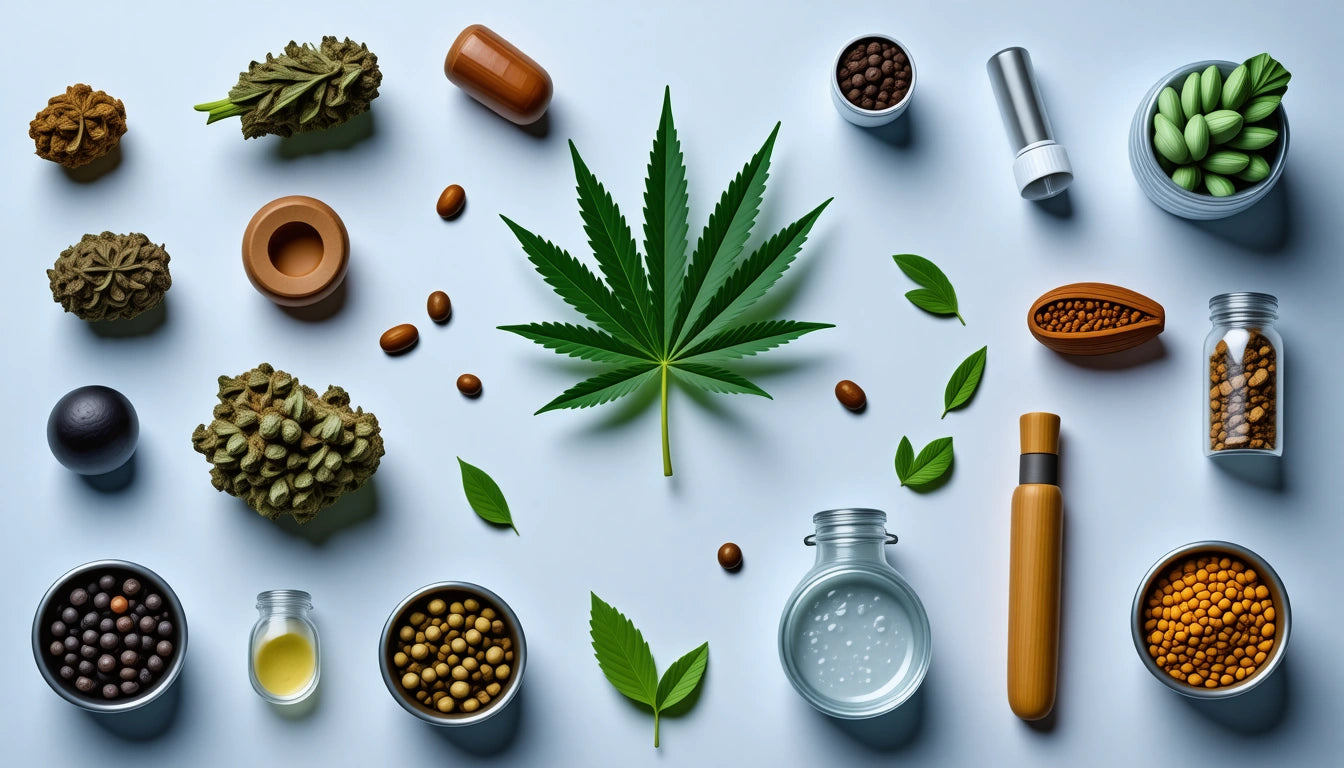Table of Contents
How THC Impacts Blood Sugar Levels and Hydration
Cannabis consumption affects multiple bodily systems, with emerging research suggesting complex interactions between THC and metabolic processes. Two frequently discussed effects involve blood sugar regulation and hydration status. Understanding these relationships is important for both recreational users and medical cannabis patients, especially those managing conditions like diabetes or those concerned about proper hydration.
The Relationship Between THC and Blood Sugar
The endocannabinoid system (ECS) plays a significant role in regulating metabolism and energy balance. THC, the primary psychoactive compound in cannabis, interacts with this system by binding to cannabinoid receptors throughout the body. These receptors are present in tissues directly involved in glucose metabolism, including the pancreas, liver, skeletal muscles, and adipose tissue.
According to research on THC effects and benefits, the compound influences various metabolic pathways that can potentially impact blood sugar levels. However, the relationship is not straightforward and depends on multiple factors including dosage, frequency of use, individual metabolic differences, and concurrent health conditions.
Does THC Lower Blood Sugar? Research Findings
Several studies suggest that THC may help lower blood glucose levels under certain conditions. This effect appears to be mediated through multiple mechanisms:
- Improved insulin sensitivity in some tissues
- Reduced inflammatory processes that contribute to insulin resistance
- Potential impact on pancreatic function and insulin secretion
- Alterations in appetite regulation that may affect overall metabolic health
A notable observation from clinical research is that regular cannabis users tend to have lower fasting insulin levels and smaller waist circumferences compared to non-users, suggesting a possible relationship between cannabinoids and glucose metabolism. This has prompted interest in whether THC or other cannabinoids could potentially help lower blood glucose levels in controlled therapeutic applications.
Does THC Raise Blood Sugar? Examining the Evidence
Despite potential glucose-lowering effects, THC can also trigger responses that might temporarily increase blood sugar levels:
- Activation of stress responses, including cortisol release
- Increased appetite ("munchies") leading to higher carbohydrate consumption
- Disruption of normal sleep patterns, which can affect glucose regulation
The impact of THC on blood sugar appears to follow a biphasic pattern, with different effects at low versus high doses. As explained in an analysis of how THC affects physiological parameters, low doses might promote glucose uptake while higher doses could potentially disrupt normal glucose homeostasis.
For individuals with diabetes or pre-diabetes, these variable effects underscore the importance of regular blood glucose monitoring when using cannabis products. When storing testing supplies or medications, proper containers with secure, child-resistant caps for medical storage jars can help maintain product integrity while ensuring safety.
The THC-Dehydration Connection: Why Cannabis Makes You Thirsty
The phenomenon known as "cotton mouth" or xerostomia is one of the most common side effects of cannabis use. This occurs because THC binds to receptors in the submandibular glands, temporarily reducing saliva production. However, the impact of THC on hydration status extends beyond just dry mouth.
THC affects the body's water balance through several mechanisms:
- Inhibition of antidiuretic hormone (vasopressin) release from the pituitary gland
- Increased urination frequency (diuretic effect)
- Reduced thirst recognition in the hypothalamus
- Altered kidney function affecting water reabsorption
These effects explain why cannabis consumption often makes you thirsty and can potentially lead to mild dehydration if fluid intake is not increased. The diuretic effect may also indirectly impact blood glucose concentration by altering blood volume and electrolyte balance.
Managing Blood Glucose and Hydration When Using Cannabis
For cannabis users concerned about blood sugar and hydration effects, several practical strategies can help maintain balance:
- Stay well-hydrated before, during, and after cannabis use
- Choose consumption methods that allow for better dose control
- Monitor blood glucose levels more frequently if you have diabetes
- Be mindful of food choices when experiencing increased appetite
- Consider lower-THC or balanced THC:CBD products which may have less pronounced effects on metabolism
Understanding how THC works in the body can help users make informed decisions about consumption patterns and timing. For medical cannabis patients with diabetes or other metabolic conditions, consulting with healthcare providers about potential interactions with existing treatments is essential.
The relationship between THC, blood sugar, and hydration represents an evolving area of cannabis research. While current evidence suggests complex bidirectional effects, individual responses vary significantly based on genetics, tolerance, dosage, and concurrent health factors. As cannabis legalization expands, more comprehensive clinical studies will likely provide clearer guidance on these important physiological interactions.











Leave a comment
All comments are moderated before being published.
This site is protected by hCaptcha and the hCaptcha Privacy Policy and Terms of Service apply.